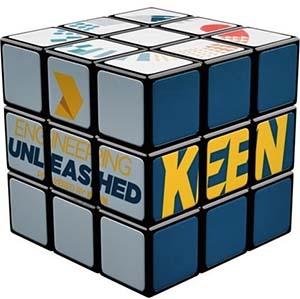2022-2023 Initiatives: Increasing Feminine Hygiene Products Access
ASUWT has partnered with the Husky Sustainability Fund and the University Y to launch a quarter-long pilot program providing free menstrual products in select bathrooms inside the University Y. The program aims to gather data with the hope of making the initiative permanent.
Status: In-Progress
Point of Contact(s): Exita Lealofi
January 18th 2023 Update:
The University of Washington Tacoma has the Childcare Assistance Program (CAP) for student parents. While this program has been able to help many, more can be done to better support these students. We aim to expand childcare access for student parents by increasing financial support for CAP recipients and by providing on-campus alternatives for childcare.
As students at the University of Washington Tacoma continue to navigate the challenges of academic life, some are also struggling with what has come to be known as "Period Poverty." One student, in particular, approached ASUWT with concerns about the cost of menstrual products on campus. In response, ASUWT has partnered with the Husky Sustainability Fund and the University Y to develop a quarter-long pilot program aimed at expanding reproductive healthcare access to all students.
Period Poverty is a term used to describe the financial barriers that many individuals face when it comes to accessing menstrual products. Those who are most impacted by period poverty are often low-income individuals and marginalized communities who may not have the means to purchase the products they need. This lack of access can result in several negative consequences, such as missed school or work days, social exclusion, and even health issues.
To address this issue, ASUWT has partnered with the Husky Sustainability Fund and the University Y to launch a pilot program during Winter 2023. This program will provide free menstrual products in select bathrooms located in the University Y; the first-floor women's locker room and gender-neutral restroom, as well as the second and third-floor women's restrooms. The number of products taken monthly will be closely monitored to measure the demonstrated need for these items on campus.
In addition to this pilot program, Exita Lealofi, the ASUWT member who spearheaded this initiative, is working closely with students to create a petition for more locations on campus to provide free menstrual products.

The goal is to demonstrate to university administration and campus facilities that there is a need for these products, and that they should be made available in more locations. ASUWT hopes that this pilot program will be just the beginning of a larger effort to expand access to reproductive healthcare products on campus. By gathering data on the demand for menstrual products, we believe that ASUWT can make a strong case for the need to provide these items to students for free on campus. With this data in hand, we hope to work with the university to develop a more comprehensive program that includes not just menstrual products, but other reproductive healthcare items (ex: condoms) as well in the future.
We know that many students face financial challenges, and we believe that access to Increased Feminine Hygiene Products Access should not be one of them. ASUWT is committed to making sure that all students have access to the resources they need to succeed both academically and personally, and this is initiative is the first big step in achieving our goals.
Recent news
Main Content
Omari Amili: Navigating the Post-Prison Pathway
Main Content
School of Education Welcomes First Undergraduate Students
Main Content
UW Tacoma Joins National Engineering Network
UW Tacoma in the News
Main Content
‘Identities Horizons’ spotlights AAPI students at UWT
Main Content
The enduring legacy of the Black 'Buffalo Soldiers'
Dr. Luther Adams - Free Man of Color discusses the history of Black participation in the U.S. military, particularly the regiments known as the Buffalo Soldiers.
Main Content
Chancellor Lange Named to Seattle Mag’s “Most Influential” List
UW Tacoma Chancellor Sheila Edwards Lange is one of the region’s 25 “most influential” people in Seattle Magazine’s 2024 review.



